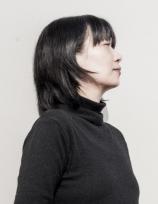Han Kang
Biography
Han Kang
Han Kang was born in 1970 in South Korea. She is the author of THE VEGETARIAN, winner of the International Booker Prize, as well as HUMAN ACTS, THE WHITE BOOK, GREEK LESSONS and WE DO NOT PART. In 2024, she was awarded the Nobel Prize in Literature.
Han Kang







